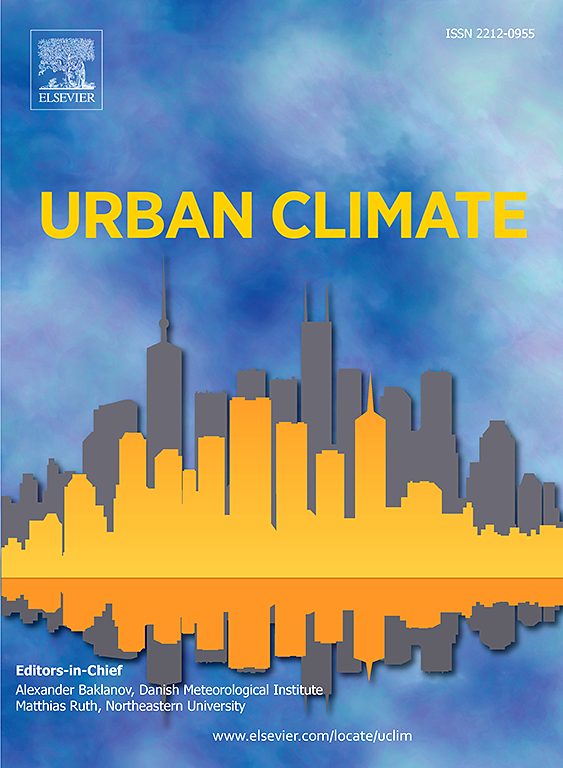Impact of extreme climates on sustainable cooling: A case study of a subtropical office building
IF 6.9
2区 工程技术
Q1 ENVIRONMENTAL SCIENCES
引用次数: 0
Abstract
This study comprehensively examines how a newly compiled extreme weather year (EWY) and climate change forecasts for 2050 and 2080 affect the energy usage, efficiency, and carbon emissions of chiller systems and thermal comfort in commercial buildings in a subtropical climate. The least-square support vector regression based on historical data (1993–2023) is used to justify hot weather conditions. EnergyPlus simulations predict annual cooling loads, electricity consumption, and predicted mean votes across different zones in a 40-story reference office building in subtropical Hong Kong. Compared to the typical meteorological year (TMY) case, the results show a minor increase in predicted peak cooling demand: 0.46 % in the EWY, 0.40 % in 2050 and 0.37 % in 2080. Thermal acceptability drops by 2.00–18.13 % in EWY, 0.41–15.78 % in 2050 and 4.15–27.79 % in 2080. Applying an ultra-efficient chiller system can lower annual electricity consumption by 12.16–13.37 %, contributing to the 30–40 % reduction target for carbon neutrality by 2050. Moreover, this advanced system can mitigate rising peak and annual carbon emissions associated with extreme heat. This study uniquely combines extreme weather analysis and climate forecasts to assess and improve the energy management of chiller systems, highlighting actionable strategies for sustainability in response to future climate challenges.
极端气候对可持续制冷的影响:以亚热带办公大楼为例
本研究全面考察了新编制的极端天气年(EWY)和2050年和2080年的气候变化预测对亚热带气候下商业建筑中制冷系统的能源使用、效率、碳排放和热舒适性的影响。基于历史数据(1993-2023)的最小二乘支持向量回归用于证明炎热天气条件。EnergyPlus模拟预测了位于亚热带香港的一栋40层参考办公楼的年冷负荷、用电量和预测平均投票。与典型气象年(TMY)相比,结果显示预测的峰值制冷需求略有增加:EWY为0.46%,2050年为0.40%,2080年为0.37%。年热接受度下降2.00 - 18.13%,2050年下降0.41 - 15.78%,2080年下降4.15 - 27.79%。采用超高效的制冷系统可以降低12.16 - 13.37%的年用电量,有助于到2050年实现30 - 40%的碳中和目标。此外,这种先进的系统可以缓解与极端高温相关的峰值和年度碳排放量的上升。这项研究独特地结合了极端天气分析和气候预报,以评估和改善冷水机系统的能源管理,突出了应对未来气候挑战的可持续发展的可行战略。
本文章由计算机程序翻译,如有差异,请以英文原文为准。
求助全文
约1分钟内获得全文
求助全文
来源期刊

Urban Climate
Social Sciences-Urban Studies
CiteScore
9.70
自引率
9.40%
发文量
286
期刊介绍:
Urban Climate serves the scientific and decision making communities with the publication of research on theory, science and applications relevant to understanding urban climatic conditions and change in relation to their geography and to demographic, socioeconomic, institutional, technological and environmental dynamics and global change. Targeted towards both disciplinary and interdisciplinary audiences, this journal publishes original research papers, comprehensive review articles, book reviews, and short communications on topics including, but not limited to, the following:
Urban meteorology and climate[...]
Urban environmental pollution[...]
Adaptation to global change[...]
Urban economic and social issues[...]
Research Approaches[...]
 求助内容:
求助内容: 应助结果提醒方式:
应助结果提醒方式:


